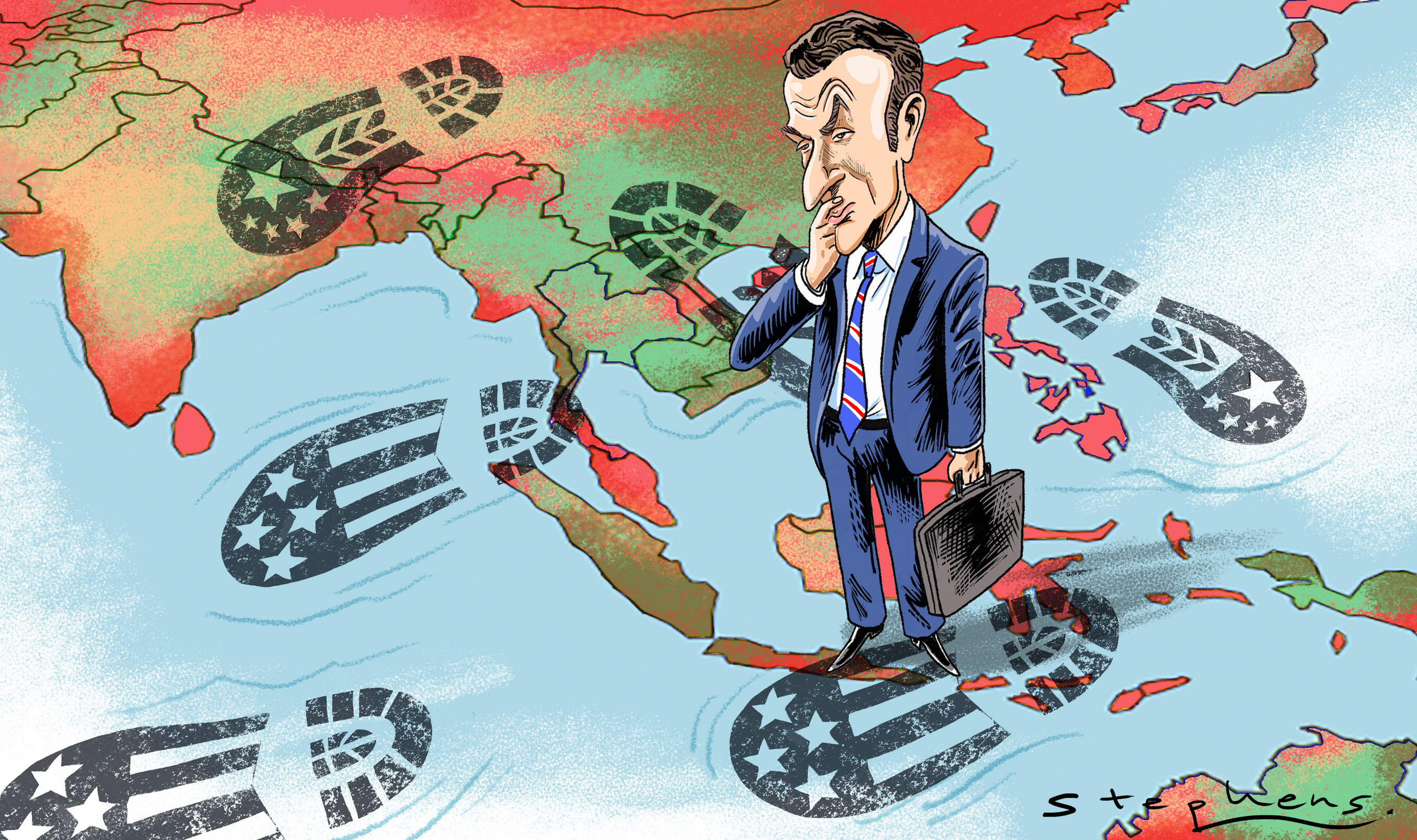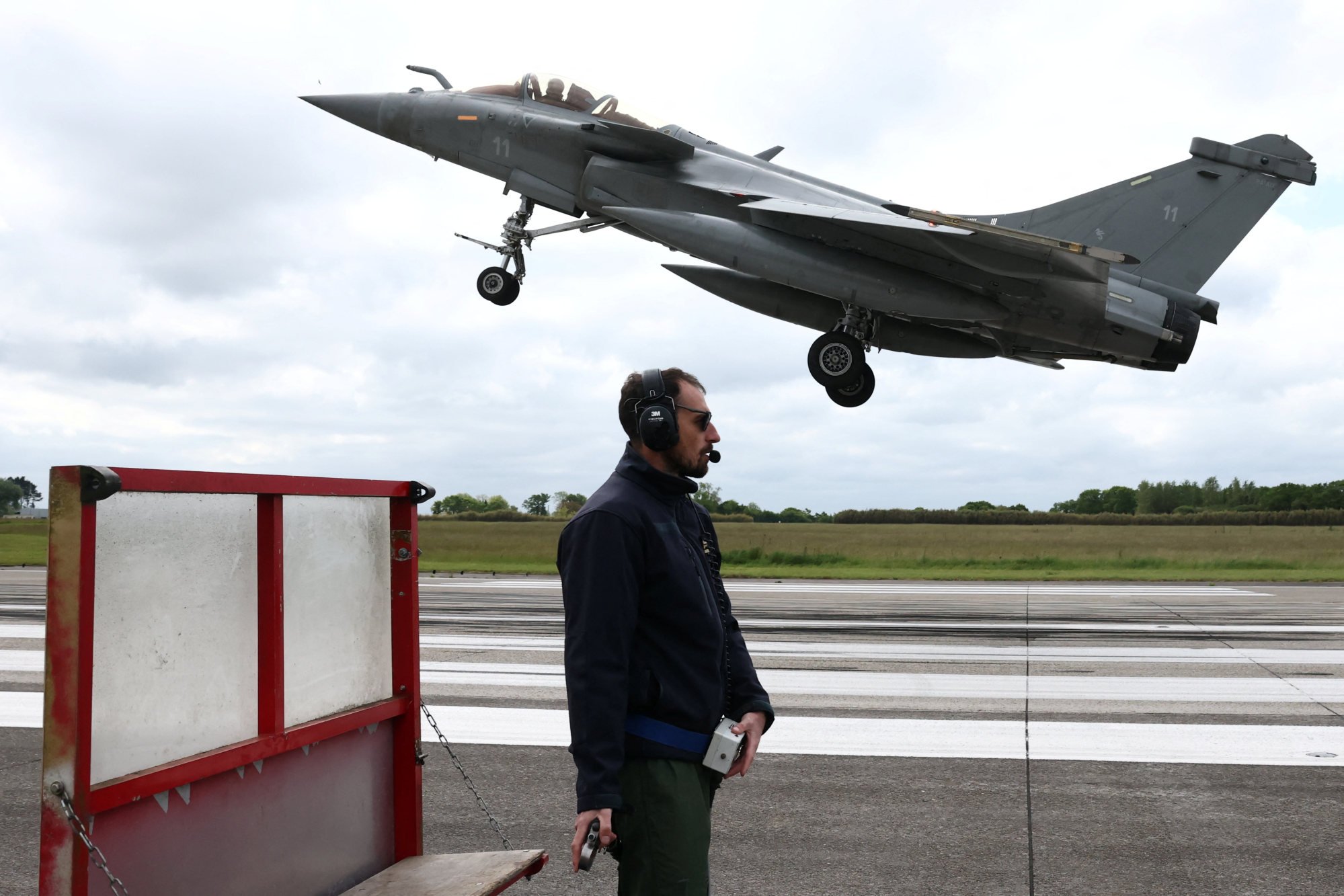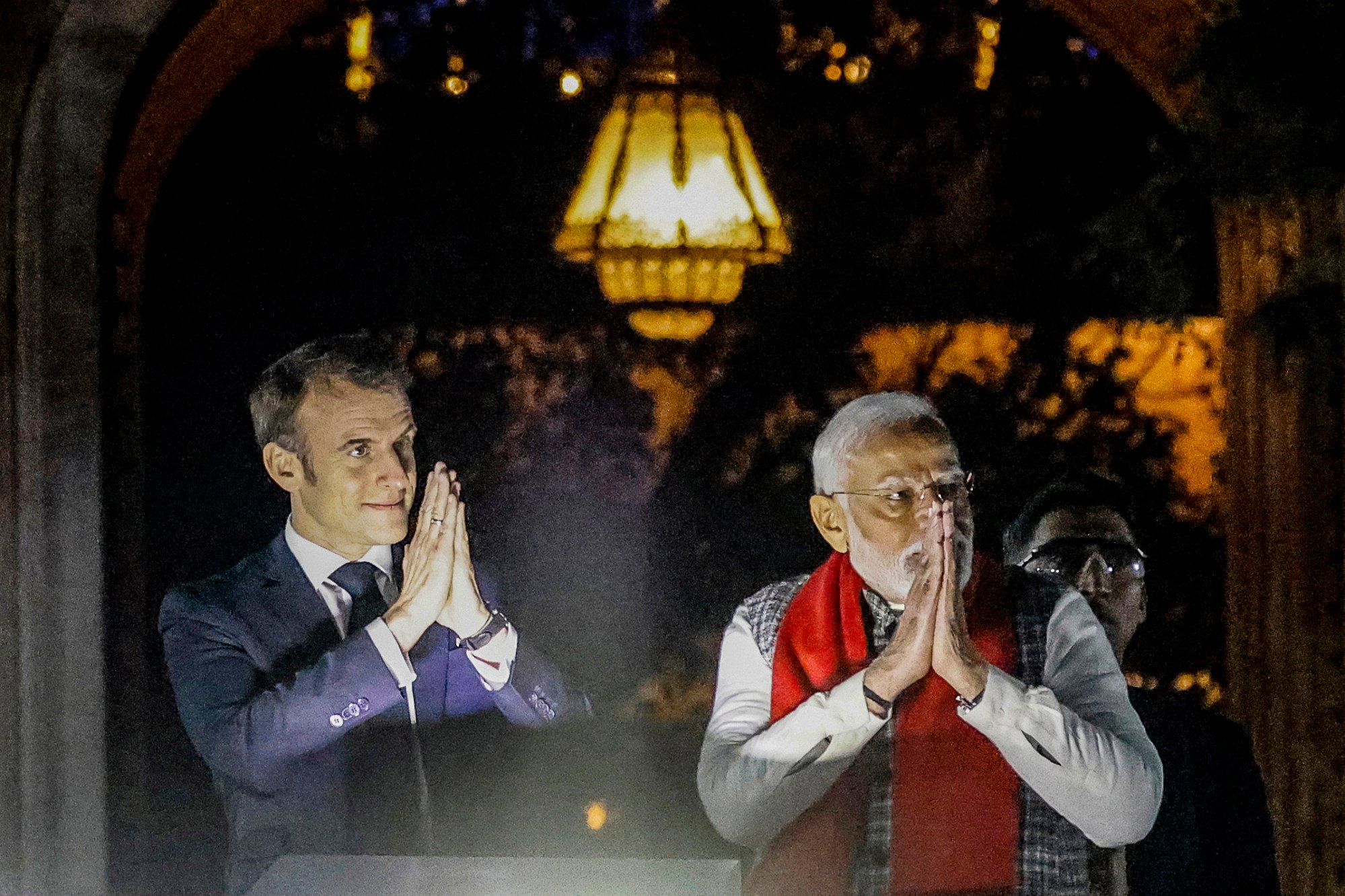Can Macron’s France be a credible power in the Indo-Pacific?
Paris’ ‘third way’ appeals to small states and middle powers eager to stay out of US-China rivalry. However, its message needs to be more coherent

On Friday, France’s President Emmanuel Macron will conclude a five-day tour of Southeast Asia with a keynote speech at the Shangri-La Dialogue in Singapore. The visit, which has included stops in Vietnam and Indonesia, was planned for a long time. Macron confirmed his attendance at the Shangri-La during a speech in Paris in January. Beyond that speech, Macron aims to use this tour to reaffirm French ambitions in the Indo-Pacific.
Those ambitions were first articulated in 2019, two years into Macron’s first term, when the French government released its Indo-Pacific Strategy – the first for a European country. In contrast to its neighbours in the European Union, France views itself as a resident power of the Indo-Pacific: seven of its overseas territories are located in the region and host 1.65 million French citizens.
By extension, 93 per cent of France’s exclusive economic zone is estimated to be in the Indo-Pacific. On France’s map of the Indo-Pacific, Southeast Asia lies between its sovereign islands of the Indian Ocean, such as La Reunion, and those of the Pacific, like Wallis and Futuna.
In recent years, through the French presence in the Indo-Pacific, Paris has felt the effects of the US-China competition across the region. As a result, Macron promotes a French strategy that seeks to avoid the logic of great power rivalry and emphasises cooperation with like-minded Asian states. While French officials may express concerns over Chinese maritime policies, they refuse to confer centrality on these issues in their engagement with local partners.
This approach, sometimes dubbed the “third way”, echoes the foreign policy of Charles de Gaulle at the height of the Cold War, when France identified itself as both a close ally of the US and a power capable of engaging on its own terms with the Soviet Union and the non-aligned nations.
Today, this French approach appeals to small states and middle powers in the Indo-Pacific eager to stay away from the rivalry between Washington and Beijing. From the outset, India has been Paris’s closest partner in supporting that goal.
Prime Minister Narendra Modi’s visit to France in February demonstrated the vitality of bilateral relations, encompassing defence cooperation and joint infrastructure projects. Macron also emphasises the importance of the United Arab Emirates, which hosts the French naval command for the Indian Ocean.
In Southeast Asia, France has deepened ties with Indonesia in recent years, and French Armed Forces Minister Sébastien Lecornu went as far as to speak of a “powerful strategic intimacy” between the countries.
Jakarta has ordered 42 Rafale fighter jets from French aviation company Dassault and two Scorpene-class submarines from Naval Group. French-Singaporean military cooperation has also intensified and involves numerous activities, from naval exchanges to partnerships in military artificial intelligence. In the same vein, Macron’s visit to Vietnam earlier this week involved deals for Airbus planes and Earth-observation satellites.
In addition to deepening those bilateral partnerships, France is keen on building regional momentum for its Indo-Pacific strategy. The Macron government does so by investing in the instruments of regional governance. Since 2020, France has been a development partner of the Association of Southeast Asian Nations and a member state of the Indian Ocean Rim Association. France also launched trilateral dialogues with India and the UAE, and India and Australia.

All of this is proof of French ambitions in the Indo-Pacific, of which Macron will surely remind the audience at the Shangri-La Dialogue. However, the event will also be crucial for him in addressing the challenges surrounding Paris’ Indo-Pacific strategy, starting with the coherence of its message.
Because French officials insist that their approach steers clear of US-China competition, they have sometimes been accused of ambiguity. Returning from a trip to China in April 2023, Macron stirred a transatlantic dispute when he asserted that Europe should not be a US “vassal” on Taiwan. In substance, Macron was not changing the French position on Taiwan that favours the status quo, but the quote and its context – a visit to mainland China – led some in the US and Europe to denounce it.
France also faces accusations of double standards over its call for a rules-based order. Macron has been adamant about getting support from Asian states for Ukraine against Russia, calling the 2022 invasion an “imperial war” and accusing neutral countries of being “complicit”.
For many Asian leaders, this stance rings hollow when compared to France’s reluctance to impose sanctions amid Israel’s war in Gaza. As the Israeli government embarks on a full military occupation of the Palestinian territory, Macron will be expected to clarify France’s position on this issue.

Lastly, the French leader will have to address the doubts of those in Asia who see French aspirations in the Indo-Pacific as lacking teeth. French diplomats are indefatigable in promoting regional initiatives, but commentators highlight the gap between the lofty political objectives and the modest military capabilities to support them.
The three French naval bases in the Indo-Pacific host a small fleet that would need additional support in case of a major crisis. This should improve in the next five years as Paris has pledged 13 billion euros (US$14.7 billion) for strengthening its regional military footprint. Another way to address this shortcoming is to forge greater cooperation with European partners like Britain and Germany.
Macron will not address all the obstacles to France’s Indo-Pacific strategy in his speech at the Shangri-La Dialogue, but as he approaches the final chapter of his presidency, he will certainly be eager to keep that strategy on the right course and start carving out his legacy.